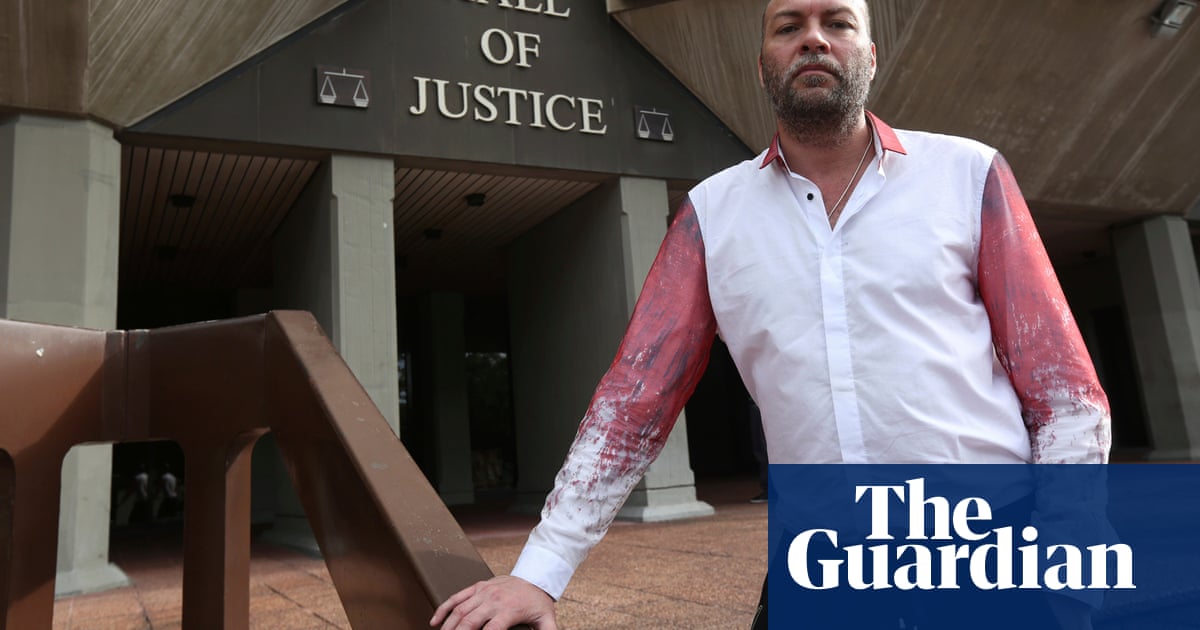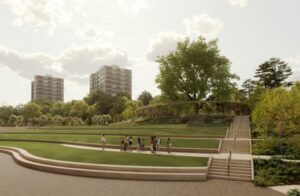
The privy council in London will soon be called upon to make the final decision on a court case to remove homophobic laws in Trinidad and Tobago.
The laws were repealed in 2018 in a high court judgment that struck from the statute book the “buggery law” that had criminalised consensual anal sex since an act passed in 1925 under British rule. However, last week Trinidad’s supreme court upheld a government appeal against the ruling and recriminalised the act, dealing a hammer blow to LGBTQ+ rights in the Caribbean country and prompting the UK Foreign Office to update its advice for LGBTQ+ travellers.
The 2018 case was brought by Jason Jones, an LGBTQ+ activist. This week he said he would continue the fight before the privy council – Trinidad’s final court of appeal. Central to his argument will be the controversial “savings clause”, which former British empire jurisdictions such as Trinidad can revert to whenever a challenge is made to their constitution.
“This backwards step revolves around the savings clause, which was designed as an instrument for the smooth transition of power upon independence in 1962 to protect the laws we had for hundreds of years. That clause is now being used against democracy in our country,” said Jones.
Jones argues that because Trinidad and Tobago altered its sexual offences legislation three times – in 1976 when it became a republic, in 1986, and in 2000 – the law can no longer be classified as “saved”.
“These are Trinidadian laws,” he said. “Parliament is hiding its homophobic bigotry behind an archaic clause that serves no useful purpose in a modern democratic country.”
The mood among Trinidad’s LGBTQ+ people is a far cry from their tears of joy on the steps of Port of Spain’s Hall of Justice seven years ago. Back then, the judge Devindra Rampersad delivered a poetic ruling that swept away nearly a century of discrimination enshrined in law.
“This is a case about the dignity of the person, not the will of the majority or any religious view,” Rampersad said at the time. “History has proven that the two do not always coincide.”
For the law to be constitutional, he added, every Trinidadian must be free “to make decisions as to whom he or she loves”.
In contrast, the weighty 196-page report from which the appeal judge Nolan Bereaux read in overturning Jones v AG was clinical, claiming, “Judges cannot change the law. We give effect to parliament’s intention. Buggery remains a crime in Trinidad and Tobago.”
The judgment reverted to a familiar trope that the law is never actually enforced in practice. “No one has been charged or punished … for engaging in consensual anal sex in the privacy of his or her home,” it said.
But LGBTQ+ activists say enforcement is not the point. Jones’s victory was achieved on the grounds that the law denied him his human rights and right to privacy.
The cofounder of Pride TT, Kennedy Maraj, described last week’s ruling as a devastating setback and a betrayal by the justice system. “It tells LGBTQ+ individuals their very existence remains subject to legal scrutiny, that progress is fragile and that hard-won rights can be overturned,” Maraj said.
Patrick Lee Loy came out to his family at 30. As one of few openly gay Trinidadian men, he said he felt “shocked and angry that, as a community, we will not be free to express who we love”.
Although Trinidad is notoriously hedonistic – its exuberance plain to see at carnival where hundreds of thousands of straight, gay, lesbian and trans Trinidadians parade the streets wearing next to nothing – the undercurrent of religious piety and even extremism that runs through its Catholic, Hindu, Anglican, Muslim and evangelical traditionalists heavily influences opinions on sexual freedom.
Whether it is safe to be gay in Trinidad is a complex question – more so than in Jamaica, where the answer is an outright no. Away from the more liberal confines of the capital, there are many communities where to be gay puts you in danger.
“I know a few gay men who were murdered,” said Loy. “The crimes were never solved. In one instance, the family did not push for an investigation in case it brought up too many ghosts.
“I have friends who only meet at their home. When we go out to a restaurant or bar, they will not come. They fear for their jobs, families and status. Now that people feel the government will not protect its citizens, some may feel it is easier to target us.”
Jones’s 2018 case triggered a wave of similar cases across the Commonwealth, including in India where homosexuality was decriminalised just months after Trinidad. A new progressive era appeared to have dawned in the global south.
In Trinidad, however, the government immediately appealed against the decision – a move designed to reassure its religious, socially conservative electorate. Backlogs delayed the case, which has taken seven years to be heard by the country’s highest court.
The ruling echoed sentiments in a similar case thrown out by Jamaica’s supreme court in 2023 that such matters were for parliament to decide.
If the privy council rules in favour of Trinidad’s government, Jones says it is time to leave the institution, which “can no longer be of useful service if hamstrung by the savings clause”.
Source: theguardian.com


















